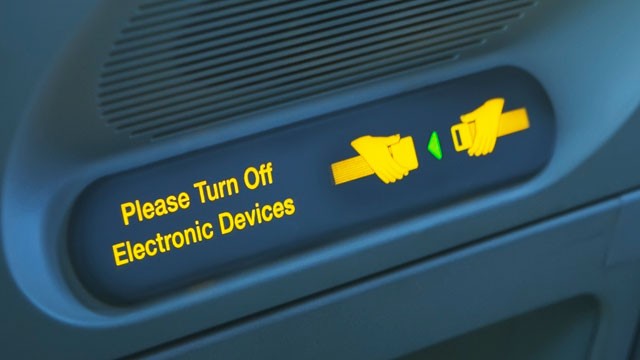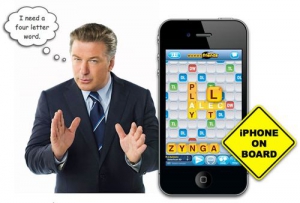Alec Baldwin will be a happy man.
The Federal Aviation Administration plans to relax most of the restrictions involving electronic devices during takeoff and landing.
The F.A.A faced pressure — both from a passenger population ever-dependent on its gadgets and from critics to make sure the planes can handle them during the most critical points of air travel.
Aviation experts said that today’s most popular devices use so little power that they are unable to interfere with a plane’s aeronautics, and modern jets are packed with electronic systems certified to withstand interference. The advisory panel created by the F.A.A. was supposed to report in July with their experimental testing but asked for an extension to September. It will recommend its new policy by the end of the month, which will most likely go into effect next year.
The recommendation will allow air travelers to continue reading their e-books, listening to their podcasts and watching their videos — all uninterrupted.
As many as 30 percent of passengers said they had accidentally left a device on during takeoff or landing, according to studies by two groups: the Airline Passenger Experience Association and the Consumer Electronics Association. Pilots have been using iPads in the cockpits for years, and flight attendants on Delta Airlines use Nokia Lumia 820s for credit card transactions. If they can use them, why can’t we?
On the flip side, flight attendants and safety advocates are concerned that laptops and tablets could turn into dangerous projectiles if a flight encounters turbulence while landing or if a pilot aborts takeoff and breaks suddenly.
While passengers can rejoice for the upcoming changes, the ban on using Wi-Fi or cell signal during takeoff and landing will remain. That means no emails, texts, calls, streaming video or (sigh) Words With Friends.
Sorry, Alec.

 Save up to 60% on Business Class. Call 1-800-435-8776
Save up to 60% on Business Class. Call 1-800-435-8776


Leave A Comment